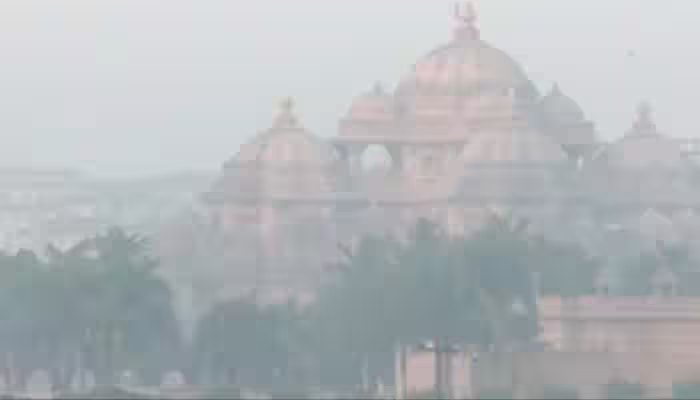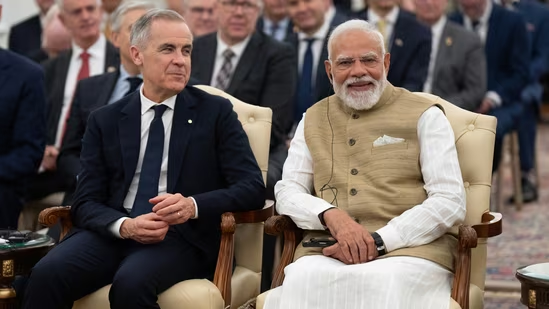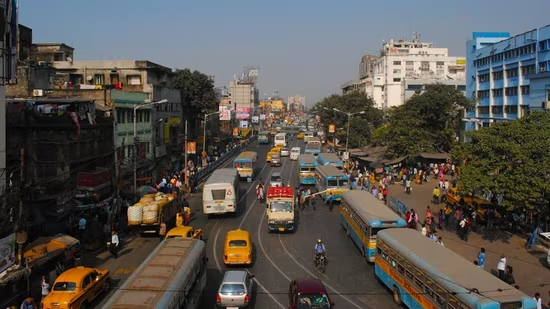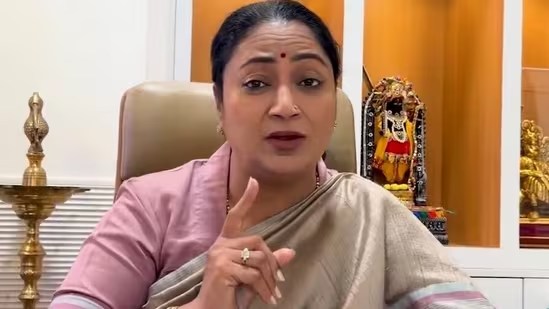Delhi Air Pollution: As coldwave grips parts of North India, the residents in Delhi woke up to a chilly morning on Thursday. The city recorded the lowest temperature of this winter season so far, with the minimum dipping to 4.5 degrees Celsius.
Cold wave conditions were observed at isolated places in the national capital, including Ayanagar and Pusa, where temperatures dropped to 3.8 and 3.2 degrees Celsius, respectively.
According to the India Meteorological Department (IMD), cold wave conditions occur when actual temperatures fall below 4.1 degrees Celsius or when the departure from normal is 4.4 degrees Celsius or more below average. A thin layer of fog covered parts of Delhi this morning as the minimum temperature dropped to 4 degrees Celsius, as per IMD.
As far as air quality is concerned, the air quality in the national capital again took a turn for the worse and dropped to “poor” on Thursday morning. On Wednesday, the minimum temperature in the national capital stood at 4.9 degrees Celsius.
The minimum temperatures in early December have been recorded below 5 degrees Celsius for the first time in 14 years, the weather department had said. According to data, the lowest minimum temperature during this period was recorded on December 6, 1987, at 4.1 degrees Celsius.
#WATCH | A thin layer of fog covered parts of Delhi this morning as the minimum temperature dropped to 4°C, as per IMD.
Visuals from Akshardham. pic.twitter.com/tkkYqwMCCX
— ANI (@ANI) December 12, 2024
Air Quality Dips In Delhi
The decline in the air quality follows a moderate air quality reading, on average, over the past 24 hours, with a reading taken at 4 pm on December 11. Unfortunately, Delhi has been grappling with severe air pollution for the past month. According to the Central Pollution Control Board’s AQI, the average air quality in the national capital was 259 and has been categorized as ‘poor.’
According to the CPCB data, Delhi’s air quality levels were recorded at 274 in Punjabi Bagh, 282 in Rohini, and 289 in RK Puram. Other areas such as Major Dhyan Chand Station reported an AQI of 245, Najafgarh recorded 224, Nehru Nagar had 310, and North Campus, DU, had 206.
On Wednesday, air quality in Delhi improved to moderate at 4 PM after it remained in the ‘poor’ category during morning hours. The Commission for Air Quality Management (CAQM) has revoked the stringent GRAP Stage IV and III restrictions in Delhi-NCR, following the Supreme Court’s permission to relax these restrictions to GRAP Stage II.
The decision came after AQI in Delhi-NCR showed significant improvement, with the average AQI reading dropping to 165, categorized as ‘moderate.’
As a result, several restrictions imposed under Stage 4 have been lifted, including the ban on diesel-run medium and heavy vehicles (BS-IV or below) registered in Delhi, except those carrying essential goods.
However, restrictions under GRAP Stage II will remain in force, including a ban on the use of coal and firewood, including tandoors at hotels, restaurants, and open eateries.
The CAQM will continue to monitor the air quality and may reinstate stricter measures if the AQI levels deteriorate. Citizens are advised to strictly adhere to the citizen charter and take necessary precautions to minimize pollution.































